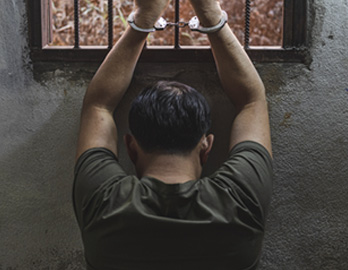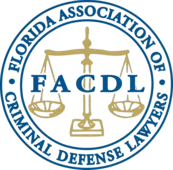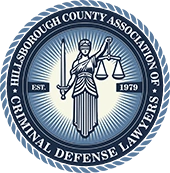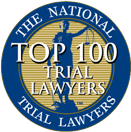Tampa Drug Crime Attorney
Tampa Drug Crime Lawyer

Facing any criminal charges can be nerve-wracking, especially more serious crimes like drug charges. The stigma attached to drug crimes, along with the harsh penalties for a conviction, including minimum mandatory sentences, all make the legal process surrounding these offenses exceedingly stressful. In the Hillsborough area, Paul Figueroa Law can assist those facing drug offenses, getting them the help they need with their charges.
What Does a Drug Crime Lawyer Do?
A drug crime lawyer is a kind of criminal defense lawyer who deals with drug offenses. These attorneys have extensive knowledge of state and federal drug schedules and laws. They also have experience navigating the charges that can be levied against a defendant accused of a drug crime.
Because of an increase in drug use and trafficking in the state, and the rise of overdoses, and deaths, Florida drug crimes tend to be pursued very harshly. To develop a strong defense for their clients, drug crime lawyers will use:
- The facts alleged by law enforcement officers or the prosecution
- The electronic surveillance or other types of electronic discovery
- Depositions of the prosecution’s witnesses such as the confidential informants, law enforcement officers, experts, or other eyewitnesses
- Their clients’ version of events
- Independent investigation or any listed witnesses
- Review of the processes, investigative techniques, or policies used by law enforcement in their investigation
- The United States Constitution and the Constitution of the State of Florida
- Evidence collected by the police
In some cases, if their client has a long history of drug use, or is suffering from substance use disorder, a drug crime lawyer can provide this information to the court. They can use this to possibly advocate for more rehabilitation-based alternatives to prison time.
Types of Crimes Handled by a Drug Crime Lawyer
Drug crimes can vary based on the amount of each drug involved. The weight of the drugs seized in narcotics investigations and arrests will determine if the individual is charged with trafficking. Also factored in are any paraphernalia or manufacturing items that were found at the time of the arrest. If the drugs were packaged to be sold, this could also warrant an intent to distribute charge. Some of the most commonly committed drug offenses include:
- Drug Trafficking: According to Florida law, drug trafficking is the deliberate sale, production, acquisition, possession, delivery, or transit of a certain quantity of drugs into the state. According to Florida Law, the minimum amounts to warrant a drug trafficking charge vary based on the kind of drug that is implicated in the charge.
- Drug Possession: Simply put, drug possession is being in control of a banned substance. In Florida, possession might be constructive or real depending on where the drugs were at the time of the arrest. Real or actual possession, referring to physical control over and contact with, is having narcotics on your person. Constructive possession, however, is when drugs are found in close proximity to you or in an area that you have dominion and control over while not in your actual possession. This charge also applies when they are not currently in your possession, but you still have control over them.
- Drug Manufacturing: The legal definition of “drug manufacturing” is purposefully broad to include a wide range of activities. Creating, preparing, distributing seeds or spores, mixing, transforming, and processing a restricted drug are forms of manufacturing. Drug manufacturing might involve adding ingredients to cocaine or heroin to cut it as well. A restricted substance may also be planted, cultivated, grown, and harvested as part of a drug manufacturing charge.
- Drug Delivery or possession with Intent to Distribute: If an individual delivers or sells a substance, the individual can be charged with a higher level of offense than mere possession of the substance. The state of Florida describes drug distribution as having or packaging illegal narcotics to sell them. It bases its charges, like most states, on the substance’s classification as per Schedules I through V.
For some drug crimes, the penalties can be more severe based on the schedule of the drug. For example, a drug possession charge for marijuana could warrant a lesser sentence than a higher-schedule drug like heroin. Speaking with a criminal defense lawyer with experience in defending drug offenses about your specific charge, as well as what it entails, is essential for developing a strong defense strategy in your case.
How Does Florida Classify Different Substances?
Florida classifies controlled substances into schedules depending on several variables. These classifications mainly concentrate on the likelihood that a substance would be abused and if it has any currently recognized medicinal applications. Several of these schedules are modeled after the Federal Controlled Substances Act (CSA) provisions, which Congress passed into law in 1970. A breakdown of Florida’s drug scheduling list is as follows:
- Schedule I: The kinds of substances listed in Florida’s Schedule I are heroin, ecstasy, peyote, and methaqualone. They have an extremely high risk of misuse and offer no suitable medical use. There is no possibility that these substances could adhere to safety requirements, not even when used under medical supervision. In Florida, marijuana is classified as a Schedule I drug due to strict drug prohibitions. Although the state has taken measures to lower marijuana-related punishments, it is still listed as a Schedule I substance.
- Schedule II: Cocaine, methamphetamine, fentanyl, and Vicodin are among the narcotics on Florida’s Schedule II list. Drugs included in Schedule II have a lower abuse risk than those listed in Schedule I, although significant misuse is still a possibility. There are some approved medicinal uses for these drugs as well. The use of these substances has the potential to cause bodily damage in addition to psychological and physical dependency.
- Schedule III: Codeine, anabolic steroids, ketamine, and testosterone are among the drugs listed as Schedule III. Compared to Schedules I and II, Schedule III substances have a far reduced potential for abuse. These medicines have a recognized medical purpose in the United States. However, they can lead to significant psychological dependence as well as low to intermediate physical dependence.
- Schedule IV: Ambien, Xanax, Tramadol, and Valium are Schedule IV substances. The drugs listed in this schedule have a recognized medical utility and a low risk for misuse. The potential for physical and psychological dependency on these medicines is minimal.
- Schedule V: Drugs listed on Florida’s Schedule V include Motofen, Parepectolin, and Lomotil. Much less misuse is possible with Schedule V drugs than Schedule IV. In the United States, there are officially recognized medical purposes for therapy with a low potential for dependency.
These schedules could significantly affect how your case turns out. The schedule of the medication and the amount of the drug will largely determine the overall penalty you may face. For example, harsher penalties will be imposed on those facing heroin possession charges than on those for substances like Xanax.
Do First-Time Drug Offenders Go to Jail or Prison in Florida?
The biggest factors for determining whether you will receive prison time or incarceration for a first-time drug offense are the schedule and amount of drugs in your possession. Possession of a restricted drug is often regarded as a third-degree felony in Florida. This carries a maximum sentence of five years in jail and a maximum fine of $5,000. The court may also impose inpatient drug treatment, require drug counseling participation, or suspend your license. If you are charged Delivery of a Controlled Substance, Possession with Intent to Sell or Distribute, or Trafficking, the fines, maximum penalties, and chances that you will face incarceration significantly increase.
If marijuana possession is the reason for your first drug charge, you may be subject to less severe punishments. As long as you have less than 20 grams, possession of marijuana is a misdemeanor offense under Florida Statutes Section 893.13(6)(b). In Florida, a misdemeanor possession conviction can result in up to a year in prison and a $1,000 fine. However If you are charged with Delivery of Marijuana, Possession of Marijuana over 20 grams, or possession of marijuana oil or wax, you can be charged with a felony offense.
What Is the Marchman Act? Placement? Why is this here?
The Florida State Legislature approved the Marchman Act, also known as the Hal S. Marchman Alcohol and Other Drug Services Act, in 1993. The Marchman Act was created to assist those who may not be in the optimal mental condition to make wise decisions about their drug addiction problems healthily and safely.
Among other stipulations, the Marchman Act allows an individual with a substance use disorder (SUD) to be involuntarily committed to a rehabilitation center for assessment and treatment. The Marchman Act actively motivates those with substance use issues to seek treatment voluntarily rather than through involuntary treatment. This can provide those facing drug offenses with a way to treat their SUD outside of prison.
How Much Does a Criminal Lawyer Cost in Florida?
The price of drug crime representation can vary based on the firm chosen. It is also determined by experience of the lawyer, the of offense and the amount of time or work that would be needed to adequately investigate and litigate the case.. For example, in a simple possession case, the price for a defense lawyer can be significantly lower than in more complicated cases. Typically, lawyers will charge more for clients facing felony charges. This is mostly because the case is considered to involve more work on the part of the defense attorney including the significant amount of time that lawyer will devote to the investigation of the case through discovery.
However, misdemeanor defenses, or lesser crimes that could warrant an infraction, often do not allow for depositions or involve the amount of discovery as a felony matter. This means that a defense attorney could choose to take on these cases at a lower rate. Outside of private representation, an individual can be appointed a public defender if the court determines that they are indigent, and they otherwise qualify for the services of the public defender. An appointed public defender is an attorney eligible to practice law in the State of Florida and will only be appointed after an arrest and will be formally appointed at the arraignment. A privately retained lawyer will be able to represent the individual prior to those events which in many occasions will allow the lawyer to get in the case prior to a filling decision being made by the prosecutor.. Finding a private attorney early on in an investigation for a drug crime case can help to secure effective, high-quality representation for your defense.
Finding a Tampa Criminal Defense Lawyer for Drug Charges
For any drug crime, finding a criminal defense lawyer for your case should be your first step once you discover that you are under investigation, are arrested, or are awaiting arraignment. Paul Figueroa has litigated hundreds of drug offense cases pre-trial and has represented clients in possession, delivery, and trafficking cases at jury trial. Paul Figueroa Law’s defense services are well-suited for any drug crime. We can help you get the legal support you need for these charges. For information on our firm and a full list of practice areas, visit our website and contact us today.
If you are currently facing a legal situation or have questions about your legal rights, don’t wait until it’s too late. Call (813) 213-0000 now or fill out our CONTACT form to speak with an experienced attorney who can guide you through the legal process and get you the help you need to protect your future.









